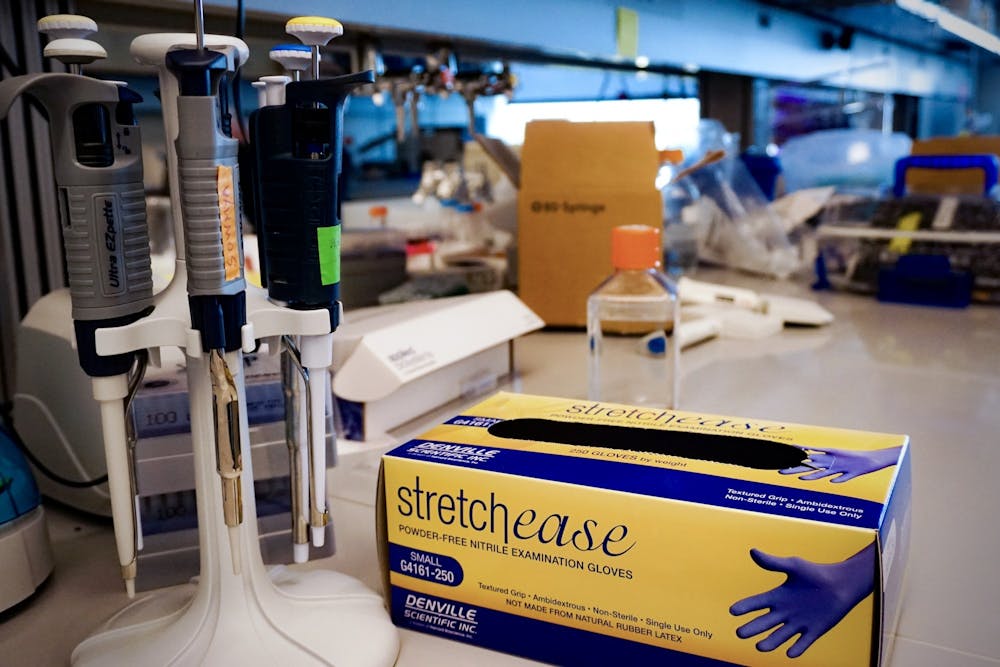
About 290 students were accepted to the Penn Undergraduate Research Mentoring Program.
Credit: Sukhmani KaurThe Penn Undergraduate Research Mentoring Program will allow in-person research this summer.
PURM is a 10-week program that allows undergraduates to conduct research with standing Penn faculty. Senior Associate Director for Undergraduate Research Ann Vernon-Grey said that while the current plan is to permit in-person research, projects may move online if the pandemic takes a turn for the worse. Vernon-Grey estimates that about 20% of projects will be in-person, and the remainder will be pretty evenly split between hybrid and remote.
Whether research is conducted in person or online is up to the individual faculty member, their research resumption plans, and the students involved, according to Vernon-Grey.
PURM is open to all rising sophomores and juniors, except for those currently engaged in programs that provide funded research opportunities, such as the Vagelos family of programs and University Scholars. Faculty members submit projects that they want students to be involved in, and students apply to up to three of these projects. In order to receive PURM funding, there must be student interest in a professor's project.
More than 1,100 students applied to PURM this year and about 290 students were accepted, up from 215 students in 2020. Vernon-Grey said the Office of the Provost provided additional financial support to give more students research opportunities during the COVID-19 pandemic.
College first year Mason Singer will work on an in-person project with assistant professor of Chemistry Monica McCallum to research the microbial chemistry of sponges.
Singer said he wanted to get into research early since he is leaning toward majoring in a STEM field such as biology, chemistry, or biochemistry.
College first year Daisy Gracia applied to PURM for a similar reason. As a pre-med student planning to major in biology, she is interested in conducting research to determine what interests her inside the field of medicine. Her project looks into overcoming some of the challenges of minimally invasive surgery with associate professor of Surgery at the Hospital of the University of Pennsylvania Kristoffel Dumon.
“My situation turned out perfectly in the end, since it goes exactly with what I’m thinking of doing in the future,” Gracia said.
Last year, PURM had over 900 applications and about 215 were accepted, Vernon-Grey said, adding that she did not want to speculate whether PURM was more competitive this year compared to previous years.
College first year Joey Jung applied to PURM because of the possibility that it would be online and because he has never done research before. Projects that piqued his interest were about climate policy, building safer and more equitable K-12 public school facilities in the United States, and the future of war. Jung was not accepted to any of the projects.
“It’s still disappointing, obviously, because it was seen as this low-pressure way to finally put your foot in the door for research,” Jung said.
Vernon-Grey said that although many professors did not receive funding from PURM and have faced other difficulties due to the pandemic, they have remained committed to involving undergraduates in their work in meaningful ways. She added that each year, multiple faculty engage students with their own funds.
“I’m excited for this year," Vernon-Grey said. "I think people have a real appetite for jumping back into things, [and hopefully this is a] great way of kicking that off.”
The Daily Pennsylvanian is an independent, student-run newspaper. Please consider making a donation to support the coverage that shapes the University. Your generosity ensures a future of strong journalism at Penn.
Donate







